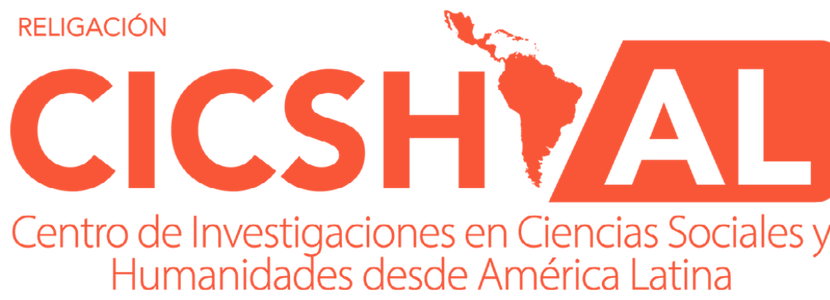A importância da conciliação extrajudicial no acesso ao judiciário
Palavras-chave:
Conflito; Negociação; Mediação; Conciliação; Descongestionamento; Judiciário.Sinopse
Quando um processo de conciliação é iniciado, o Centro de Conciliação nomeia um conciliador responsável pelo processo, que então convida as partes para uma Audiência Única de Conciliação, marcando uma data e um horário para a audiência. Em muitas ocasiões, uma das partes não comparece, devido à falta de conhecimento dos benefícios do processo. Isso gerou preocupação entre os vários centros, especialmente entre os conciliadores, que dizem que seus assessores os aconselham a não comparecer. Aqueles que trabalham como conciliadores extrajudiciais não podem ficar alheios a essa preocupação, o que gera uma necessidade imperativa de realizar esse trabalho. Dessa forma, podemos contribuir, a partir de nosso “posto de combate”, para a divulgação da conciliação e garantir que os convidados a conciliar e o público em geral tenham consciência da importância da conciliação, evitando, de alguma forma, o constante não comparecimento das partes às audiências. As razões acima mencionadas levam a dissipar a incerteza e a falta de conhecimento dos usuários em potencial do procedimento de conciliação; mas, fundamentalmente, a exortar os profissionais do direito que são, por natureza, os primeiros conselheiros dos usuários em potencial da conciliação, a reconhecer que a conciliação não é apenas um requisito de admissibilidade, mas também um mecanismo de resolução de disputas. Portanto, eles são obrigados a informar de maneira eficaz e abrangente sobre as virtudes e as deficiências de todos os mecanismos que podem ser usados para resolver uma disputa sem ir ao tribunal. Dessa forma, os usuários poderão decidir sobre o mecanismo que considerarem adequado.
Downloads
Referências
Caivano, R. (1998). Negociación, Conciliación y Arbitraje: Mecanismos Alternativos para la Resolución de Conflictos. APENAC.
Caivano, R. (2001). El arbitraje: nociones introductorias. Material preparado para el dictado de la materia «Elementos de Derecho Comercial». Universidad de Buenos Aires.
Colín, A. I., & Baxin, O. P. (2019). Los conflictos y la vida diaria. Pensamiento Americano, 12(23), 169-182.
Díaz, J. (2018). La necesidad e importancia del Estado para mantener la obligatoriedad de la conciliación extrajudicial como etapa previa al proceso judicial. Legis.pe. https://lc.cx/8g00fc
Díaz, L. M. (1999). La mediación y negociación para resolver conflictos legales. Organización de los Estado Americanos, Secretaría General.
Fuquen, M. E. (2003). Los conflictos y las formas alternativas de resolución. Tabula rasa, (1), 265-278.
Gálvez, M. (1996). Introducción al proceso civil. Temis-De Balunde & Monroy.
Guzmán Barrón, C. (1998). La Conciliación: principales antecedentes y características. Derecho PUCP, 52 -67.
La Torre, V. (2005). Conflicto: Una Visión lntegradora. CULTURA, (19), 420-436.
Ledesma, M. (2000). El Procedimiento Conciliatorio. Lima-Perú. Gaceta Jurídica, Primera Edición. Pp. 374
Montoya-Sánchez, M., & Salinas-Arango, N. (2016). La conciliación como proceso transformador de relaciones en conflicto. Opinión Jurídica, 15(30), 127-144.
Rodríguez-Marrero, B. (2015). Consideraciones sobre conflictos en las organizaciones deportivas. Definición, análisis y soluciones. PODIUM-Revista de Ciencia y Tecnología en la Cultura Física, 10(1), 106-113.
Ruiz, I. (2020). La ficción de la obligatoriedad en la conciliación extrajudicial en Perú. Universidad Señor de Sipán.
Silva, G. (2008). La teoría del conflicto. Un marco teórico necesario. Prolegómenos. Derechos y valores, 11(22), 29-43.
Suárez, V. C. (2015). Conflictos interpersonales. Tendencias actuales en su manejo y solución. Emerging Trends in Education, 3(5), 9.
Vado Grajales, L. O. (2006). Medios alternativos de resolución de conflictos. Unam.
Zegarra, H. (1999). Formas alternativas de concluir un proceso civil. Marsol Perú Editores.

Publicado
Séries
Licença

Este trabalho está licenciado sob uma licença Creative Commons Attribution 4.0 International License.





